What Are Processed Foods Doing To Your Health?
Author: Dr. Stephen Chaney
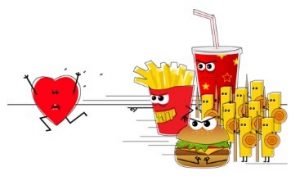 Does processed food cause cancer?
Does processed food cause cancer?
We Americans have a love, hate relationship with processed foods. We love how they taste. We love the convenience. All our friends eat them, so it is the socially acceptable thing to do. But, we also worry about them. We know they aren’t good for us.
We know they increase our risk of becoming obese. We have been warned that they may increase our risk of heart disease, diabetes, and hypertension. But, what if they also increased our risk of cancer? A new study strongly suggests that ultra-processed foods significantly increase our cancer risk.
What Are Ultra-Processed Foods?
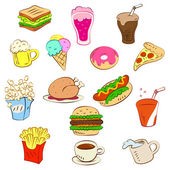 Until recently it had been very difficult to determine the effect of processed foods on our health because there was no uniform system for classifying the processed food content of our diet. With no consistent classification system, the outcomes varied from one study to the next. That changed around 2016 with the development of the NOVA food classification system. The NOVA system divides foods into four categories:
Until recently it had been very difficult to determine the effect of processed foods on our health because there was no uniform system for classifying the processed food content of our diet. With no consistent classification system, the outcomes varied from one study to the next. That changed around 2016 with the development of the NOVA food classification system. The NOVA system divides foods into four categories:
- Ultra-processed foods.
- These are foods most Americans would consider junk foods.
- Commercially Processed foods.
- These are commercially processed foods using natural ingredients like salt, sugar, and fats. For example, frozen peas would be considered a minimally processed food (category 4). Frozen peas with added salt or frozen creamed peas would be considered a commercially process food.
- Restaurant Foods.
- These are foods processed in a kitchen (either in people’s homes or a restaurant) using salt, sugar, and/or fats to produce a culinary masterpiece (As you might suspect from the emphasis on culinary masterpiece, this is a European classification system).
- Unprocessed or minimally processed foods.
- These are foods that most Americans would consider whole foods. They are either raw or minimally processed.
Intuitively, you have probably already guessed that foods in category 1 are likely to be bad for us and foods in category 4 are likely to be good for us. Categories 2 and 3 start with healthy foods but often end up with foods that are higher in salt, sugar, and/or fat than most experts would consider to be healthy.
With this classification system in mind, the next step was to classify every food in large food databases into one of these four categories. In this case the 3,300 item French NutriNet-Santé food composition database was used.
How Was The Study Performed?
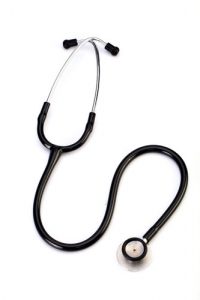 This study (T. Fiolet et al, British Medical Journal, 2018;360:k322 doi: 10.1136/bmj.k322) was performed as part of the 8-year NutriNet-Santé web-based program launched in France in 2009 with the objective of studying the associations between nutrition and health. This study enrolled 104,980 participants who were 18 or older. The average age of participants was 42.8 years. There were 82% women and 18% men enrolled in the study.
This study (T. Fiolet et al, British Medical Journal, 2018;360:k322 doi: 10.1136/bmj.k322) was performed as part of the 8-year NutriNet-Santé web-based program launched in France in 2009 with the objective of studying the associations between nutrition and health. This study enrolled 104,980 participants who were 18 or older. The average age of participants was 42.8 years. There were 82% women and 18% men enrolled in the study.
Dietary intake was assessed using an online 24-hour dietary recall survey administered every 6 months over a two-year period. The survey was administered on random days so that every day of the week was covered in the survey. On average, participants completed 5 diet surveys during the study. The validity of these dietary surveys has been established in other studies that were part of this project.
Over an average 5-year follow-up, cancer incidence was assessed via a check-up questionnaire for health events that was administered every three months. Participants were also encouraged to self-report health events at any time. Any time a cancer diagnosis was received, a physician from the study team contacted the participant and requested their medical records, which were provided in 80% of the cases. Finally, French death records were also screened to identify any study participants who died from cancer during the study.
In short, this was a very well-done study.
Does Processed Food Cause Cancer?
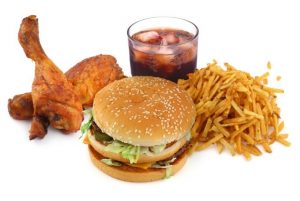 Using the NOVA classification system, this question is concerning ultra-processed food.
Using the NOVA classification system, this question is concerning ultra-processed food.
Here is what the study showed:
- Every 10% increase in the proportion of ultra-processed foods (junk foods) in the diet was associated with a 12% increase in overall cancer and a 11% increase in breast cancer.
- No association was seen between commercially processed foods or restaurant foods in the diet and cancer.
- Every 10% increase in the proportion of unprocessed foods in the diet was associated with a 9% decrease in overall cancer and a 58% decrease in breast cancer.
Just in case you might be tempted to say that a 12% increase in cancer risk is insignificant, remember it is the cancer risk associated with just a 10% increase in ultra-processed foods in the diet. Recent studies have suggested that ultra-processed foods contribute from 25% to 50% of the calories consumed by most Americans.
The authors concluded “[The] rapidly increasing consumption of ultra-processed foods may drive an increased burden of cancer and other non-communicable disease.”
What Does This Study Mean For You?
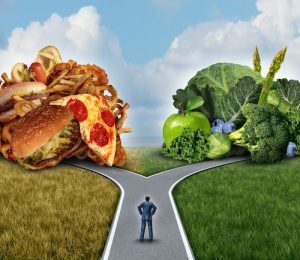 Because the NOVA classification system for identifying the processed food composition of the diet is a recent introduction, this is the first study of its kind. While it is a very good study, it needs to be confirmed by further studies in different population groups.
Because the NOVA classification system for identifying the processed food composition of the diet is a recent introduction, this is the first study of its kind. While it is a very good study, it needs to be confirmed by further studies in different population groups.
It would be tempting to ascribe the higher cancer incidence to secondary consequences of ultra-processed food consumption. For example, consumption of ultra-processed food is associated with:
- Obesity which, in turn, is associated with increased cancer risk.
- Increased intake of fat, saturated and trans fats, and sugar and decreased intake of fiber and essential nutrients. The effect of these dietary changes is uncertain but could be associated with higher cancer risk.
- Decreased intake of fruits, vegetables, and whole grains which would result in increased cancer risk.
- Increased intake of neoformed contaminants (a fancy term for contaminants formed during processing such as acrylamide, heterocyclic amines, and polyaromatic hydrocarbons). These are all carcinogenic compounds. They are usually present in very small amounts, so their effect on cancer risk is uncertain.
- Increased consumption of food additives of uncertain safety.
While this is an interesting area for future research, it represents a danger and shows that we will try to “have our cake and eat it too.” Let me explain what I mean by that.
 We love our junk foods. Food manufacturers will be only too happy to provide us with “healthier junk foods” by removing salt, sugar, and/or fat and replacing them with a chemical smorgasbord of artificial ingredients. They will reduce calories (again by adding artificial ingredients) so they can claim their junk foods won’t make us fat. They can reduce neoformed contaminants like acrylamide and claim their junk foods are now healthy. But, are they really any healthier? Not necessarily, according to this study.
We love our junk foods. Food manufacturers will be only too happy to provide us with “healthier junk foods” by removing salt, sugar, and/or fat and replacing them with a chemical smorgasbord of artificial ingredients. They will reduce calories (again by adding artificial ingredients) so they can claim their junk foods won’t make us fat. They can reduce neoformed contaminants like acrylamide and claim their junk foods are now healthy. But, are they really any healthier? Not necessarily, according to this study.- The investigators performed a very sophisticated statistical analysis. The 12% increase in cancer they reported had already been adjusted for differences in age, sex, BMI (a measure of obesity), physical activity, smoking habits, alcohol intake, family history of cancer, and educational level. They also adjusted for fat, salt, and sugar content of the diet.
- Some supplement companies may tell you that it’s OK to eat junk foods as long as you take the supplements they are trying to sell you. I have head dietitians say it’s OK to eat junk foods as long as you “balance” your diet with lots of fruits and vegetables. The results of this study suggest those approaches won’t be much help either.
- Further analysis of their data by the investigators showed that the 12% increase in cancer risk was independent of overall fruit and vegetable consumption and supplement use.
The only variables left were increased intake of food additives and neoformed contaminants, and it is unlikely that those would have been sufficient to cause a 12% increase in cancer.
So, does processed food cause cancer?
Once again it appears to be the foods we eat rather than the individual components in those foods that are either good for us or bad for us. The inescapable conclusion from this study is that we are more likely to be healthy if we eat fewer processed foods and more unprocessed foods. Who would have guessed?
The Bottom Line:
A recent study looked at the effect of ultra-processed foods (otherwise known as junk foods) on cancer risk. This was a very well-designed study, and it showed.
- Every 10% increase in the proportion of ultra-processed foods in the diet was associated with a 12% increase in overall cancer and a 11% increase in breast cancer.
- Every 10% increase in the proportion of unprocessed foods in the diet was associated with a 9% decrease in overall cancer and a 58% decrease in breast cancer.
Just in case you might be tempted to say that a 12% increase in cancer risk is insignificant, remember it is the cancer risk associated with just a 10% increase in ultra-processed foods in the diet. Recent studies have suggested that ultra-processed foods contribute from 25% to 50% of the calories consumed by most Americans.
This is the first study of its kind. While it is a very good study, it needs to be confirmed by further studies in different population groups.
When you look at the details of this study it appears to be the foods we eat rather than the individual components in those foods that are either good for us or bad for us. The inescapable conclusion from this study is that we are more likely to be healthy if we eat fewer processed foods and more unprocessed foods. Who would have guessed?
For more details, read the article above:
These statements have not been evaluated by the Food and Drug Administration. This information is not intended to diagnose, treat, cure or prevent any disease.
